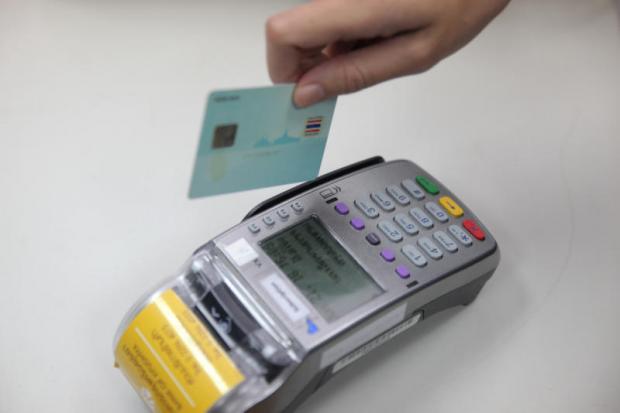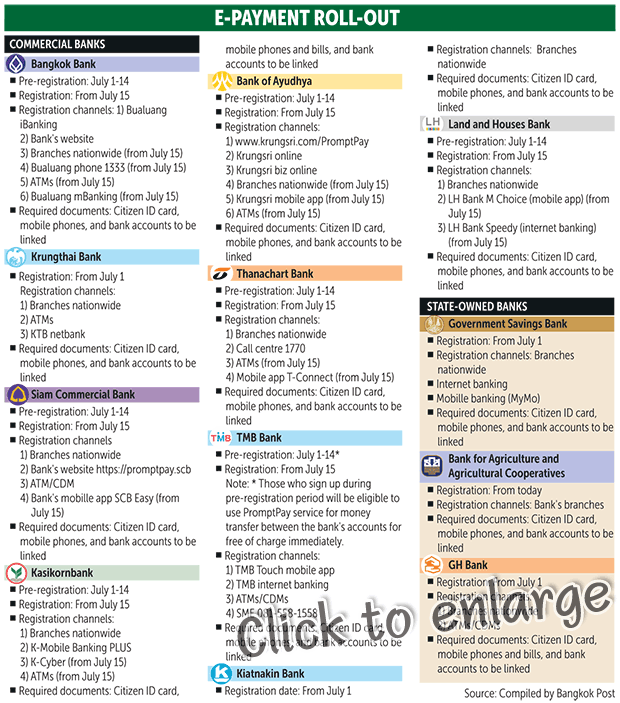
The chance to pay for everyday needs, be it your electricity or grocery bill, without having to queue up at banks or ATMs and carry cash everywhere you go, is set to become a reality in Thailand. That's thanks to the imminent national e-payment system, which will turn smartphones or tablets into digital wallets.
E-payment aims to create a cashless society and support Thailand's digital economy policy.
The scheme will kick off with an electronic money transfer service called PromptPay, formerly called Any ID, which is expected to be available at all banks at the end of October.
The second phase will allow electronic payments for products and services, personal income tax returns, and subsidies and welfare services. The implementation date for this facet of the plan is yet to be announced.
Some banks will offer the new online money transfer service to their customers before October. For instance, Siam Commercial Bank (SCB) plans to allow its account holders who register for the service to make online cash transfers next month.
Moreover, with the PromptPay service, people can easily and rapidly transfer money online to recipients who hold accounts at different banks, or even the same banks in cross-clearing zones, without any charges. By contrast, brick-and-mortar banks now impose fees on money transfers when cash is moved to another bank or even the same bank in different clearing zones.
They will also pay less in money transfer fees.
Currently, money transfers between banks are charged at around 10-50 baht per transaction, depending on the amount, the recipients' bank and destination.
Under PromptPay, all transactions up to 5,000 baht are free; 5,000-30,000 baht transfers are charged a fee of no more than two baht; 30,000-100,000 baht transfers cost no more than five baht; and transfers exceeding 100,000 baht are charged no more than 10 baht.
The exact fees will be set by each bank at a later date.
What's more, those who transfer money will no longer need to remember the recipient's 10-digit bank account number or bank name, as the transactions will only require their mobile phone or ID card number.
PromptPay will also be safer, as users don't have to carry cash on hand, which puts them at risk of theft or loss.
Interested users are required to sign up to link their citizen ID card or mobile phone numbers to bank accounts at 15 commercial banks and four specialised financial institutions -- the Government Savings Bank, GH Bank, Islamic Bank of Thailand and the Bank for Agriculture and Agricultural Cooperatives.
Almost all of these banks will be ready to register people from July, and many will allow people to sign up for the service even if they are not an existing customer.
No deadline has been set for registration.
Eligible accounts to be linked via ID cards or mobile phones are individual savings or current accounts.
One registered PromptPay account can be linked to a maximum of four numbers -- one ID card and three mobile phone numbers -- and these numbers must not be linked with any other account.
In cases where users would like to change the bank with which they have connected to PromptPay, they can cancel their registration and re-register with another bank. Detail changes to registered bank accounts or mobile numbers can also be made.
Registration can be made via ATMs, online banking, mobile banking or at participating bank branches, depending on each bank's terms and conditions.
